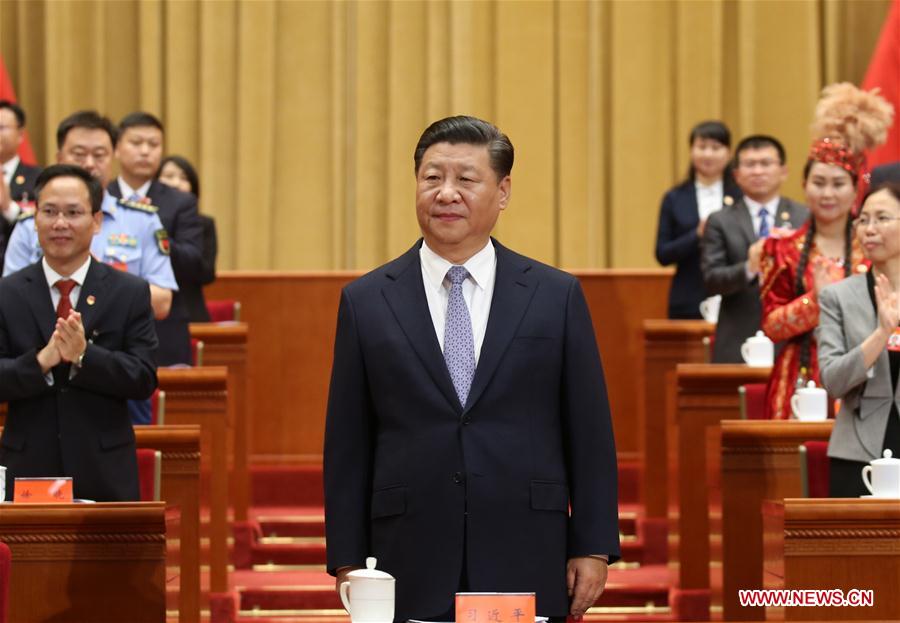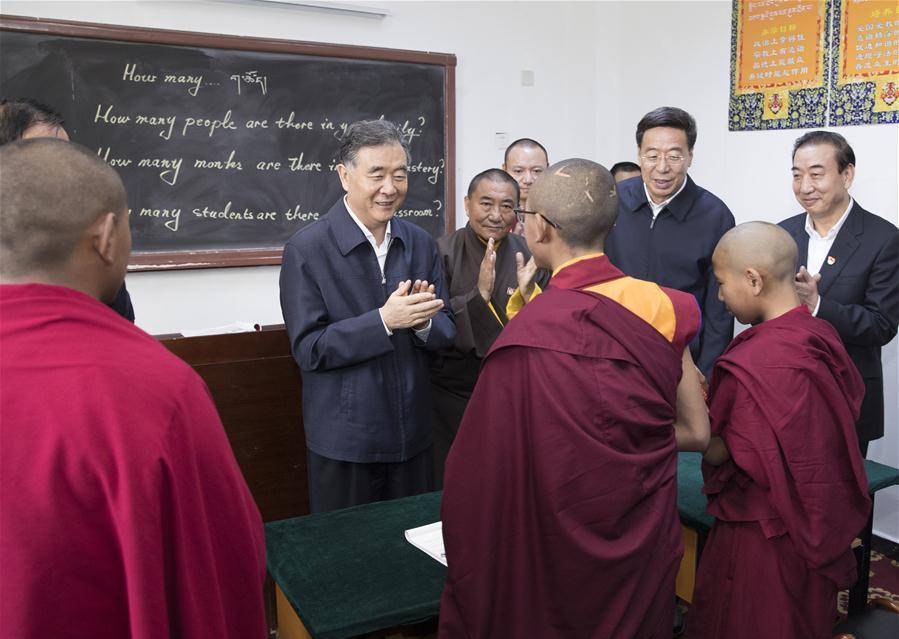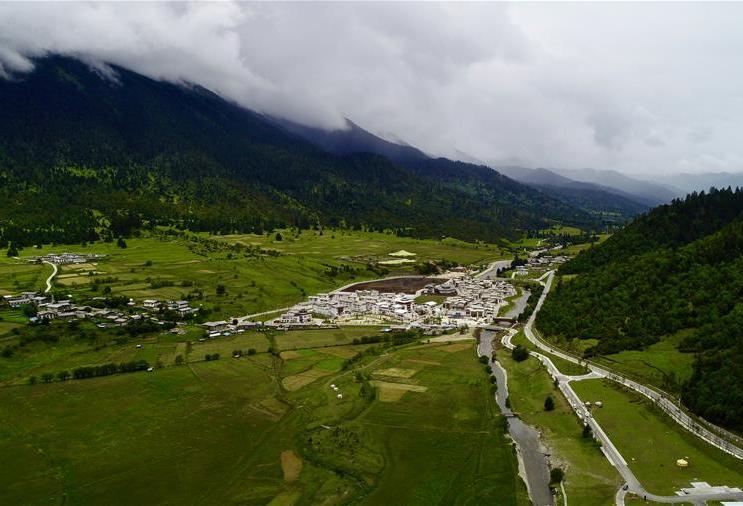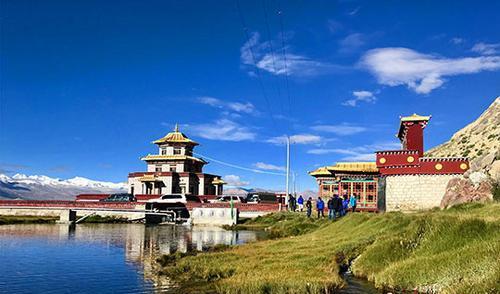Europe, Japan send spacecraft on 7-year journey to Mercury
European and Japanese space agencies said an Ariane 5 rocket successfully lifted a spacecraft carrying two probes into orbit Saturday for a joint mission to Mercury, the closest planet to the sun.
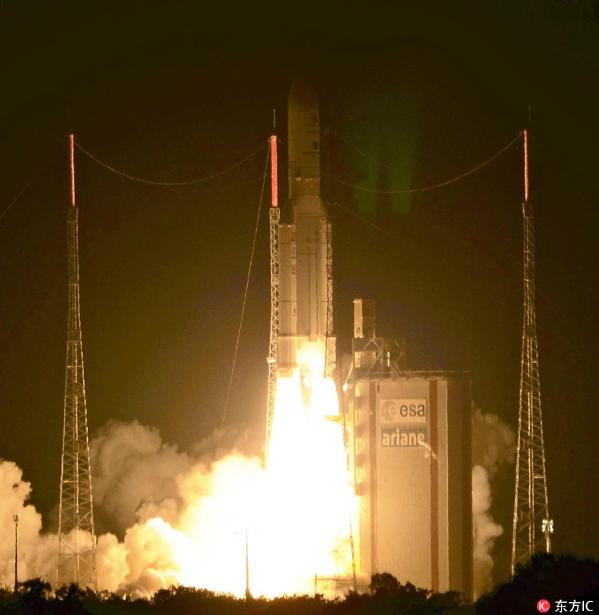
Ariane 5 rocket launches at Guiana Space Center, Kourou, French Guiana on Oct.19, 2018. [Photo: IC]
The European Space Agency and the Japan Aerospace Exploration Agency said the unmanned BepiColombo spacecraft successfully separated and was sent into orbit from French Guiana as planned to begin a seven-year journey to Mercury.
They said the spacecraft, named after Italian scientist Giuseppe "Bepi" Colombo, was in the right orbit and has sent the first signal after the liftoff.
ESA says the 1.3 billion-euro ($1.5 billion) mission is one of the most challenging in its history. Mercury's extreme temperatures, the intense gravity pull of the sun and blistering solar radiation make for hellish conditions.
The BepiColombo spacecraft will have to follow an elliptical path that involves a fly-by of Earth, two of Venus and six of Mercury itself so it can slow down before arriving at its destination in December 2025.
When it arrives, BepiColombo will release two probes — Bepi and Mio — that will independently investigate the surface and magnetic field of Mercury. The probes are designed to cope with temperatures varying from 430 degrees Celsius (806 F) on the side facing the sun, and -180 degrees Celsius (-292 F) in Mercury's shadow.
The ESA-developed Bepi will operate in Mercury's inner orbit, and JAXA's Mio will be in the outer orbit to gather data that would reveal the internal structure of the planet, its surface and geological evolution.
Scientists hope to build on the insights gained by NASA's Messenger probe, which ended its mission in 2015 after a four-year orbit of Mercury. The only other spacecraft to visit Mercury was NASA's Mariner 10 that flew past the planet in the mid-1970s.
Mercury, which is only slightly larger than Earth's moon, has a massive iron core about which little is known. Researchers are also hoping to learn more about the formation of the solar system from the data gathered by the BepiColombo mission.
"Beyond completing the challenging journey, this mission will return a huge bounty of science," said Jan Wörner, ESA Director General, in a statement.
JAXA President Hiroshi Yamakawa, who earlier managed the project, said, "We have high expectations that the ensuing detailed observations of Mercury will help us better understand the environment of the planet, and ultimately, the origin of the Solar System including that of Earth."
It is the second recent cooperation between the Europeans and the Japan Aerospace Exploration Agency. JAXA's Hayabusa2 probe dropped a German-French rover on the asteroid Ryugu earlier this month.
Your Comment
Name E-mailRelated News
-
-
Standards being set for Chinese space station
A technical committee is being established for setting up standards for China's planned space station, reports the China Manned Space Engineering Office on Sunday.
-
-
Japanese tycoon going on SpaceX rocket says he trusts Musk
The Japanese online retail tycoon who plans to travel to the moon on the SpaceX rocket says he respects and trusts Elon Musk as a fellow entrepreneur, despite his recent troubles.
-
-
U.S. to establish Space Force by 2020: Pence
U.S. Vice President Mike Pence said Thursday that the United States plans to establish a Space Force by 2020, an idea floated by President Donald Trump and questioned by many top officers at the Pentagon.
-
-
China launches new remote sensing satellites
Two remote sensing satellites were successfully sent into space Tuesday from the Jiuquan Satellite Launch Center in northwest China.
-
-
Trump announces plans for Pentagon to create 'Space Force'
President Donald Trump announced Monday he is directing the Pentagon to create a new "Space Force" as an independent military service branch aimed at ensuring American supremacy in space — though he may have limited power to develop a new military command.



